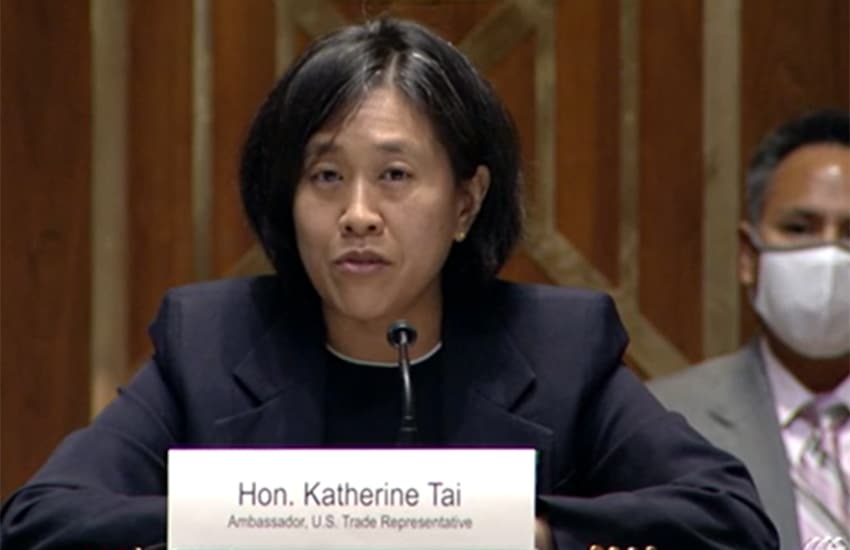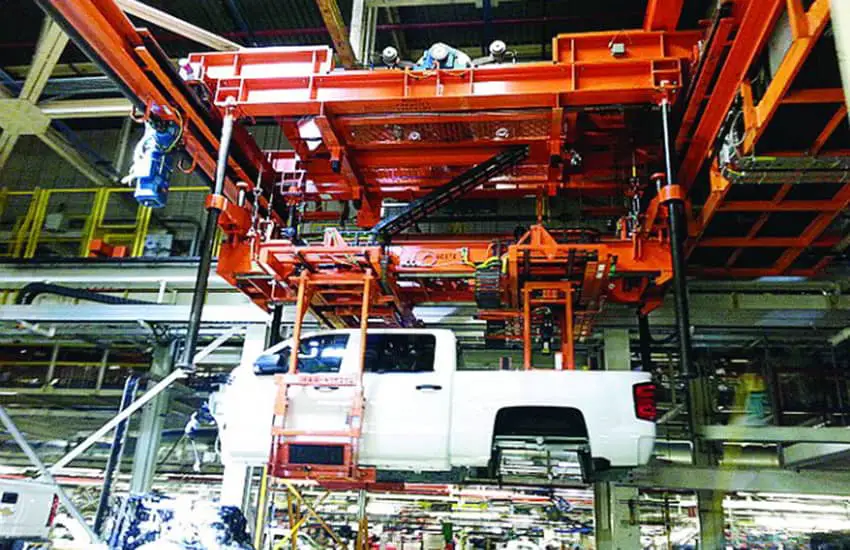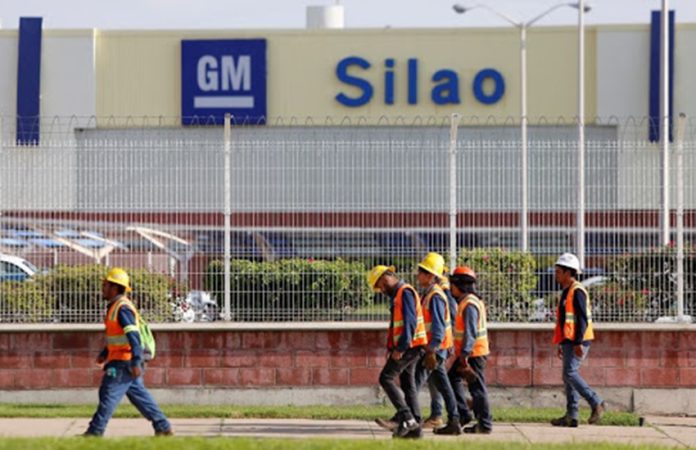The federal Labor Ministry (STPS) on Tuesday ordered the General Motors (GM) union in Silao, Guanajuato, to hold a new vote to ratify a collective bargaining agreement following pressure from United States lawmakers for GM to address alleged abuses that could be in violation of the North American trade agreement.
Today, the United States government followed up by asking Mexico to review the alleged abuses at the pickup truck factory in Silao, a request that could lead to the imposition of tariffs on some of the automaker’s most profitable vehicles under the terms of the United States-Mexico-Canada Agreement (USMCA).
The STPS said in a statement that it found “serious irregularities” in the worker vote, held on April 20 and 21, including the destruction of some ballots and the union’s refusal to hand over documentation of the vote tally to independent labor inspectors.
The irregularities in the vote — required under a new Mexican labor reform to ensure that workers are not subject to collective contracts that maintain low salaries —“violated the principles of safety and certainty that must govern every democratic process,” the ministry said.
“Due to the above, this labor authority declared the process null and ordered the union to repeat it within a period of 30 days …”

The news agency Reuters reported that Hugo Varela, head of the Guanajuato branch of the powerful Confederation of Mexican Workers (CTM), to which the GM union belongs, didn’t respond to its request for comment on the STPS order. However, it noted that Varela previously said that the CTM was committed to complying with the law.
The STPS directive came after U.S. Democratic Party Representatives Dan Kildee, Bill Pascrell and Earl Blumenauer wrote to GM to seek answers about potential abuses at its plant in Silao, an industrial city 20 kilometers southwest of Guanajuato city.
In a letter to GM Chief Executive Mary Barra, the lawmakers said the United States’ largest automaker “has a responsibility to speak out against violations of labor and human rights abuses at the Silao GM plant,” which employs some 6,000 workers.
GM denied any wrongdoing and asserted that government-approved inspectors were not stopped from entering the site where last month’s worker vote was held. The company also said it condemns violations of labor rights and has retained a third-party firm to conduct an independent review of such allegations.
The Biden administration picked up on the lawmakers’ concerns and asked Mexico to review the alleged violations. United States Trade Representative Katherine Tai announced Wednesday that the U.S. had asked Mexico to review whether GM workers were being denied the right of free association and collective bargaining.
Her office said in a statement that “the request is the first time any country has used the novel Rapid Response Labor Mechanism in the United States-Mexico-Canada Agreement.”
The mechanism allows countries to target worker rights violations at specific factories.
Tai said “today’s action shows the Biden-Harris administration’s serious commitment to workers and a worker-centered trade policy,” adding that “using USMCA to help protect freedom of association and collective bargaining rights in Mexico helps workers, both at home and in Mexico, by stopping a race to the bottom.”
She also said the United States’ request for a review of the situation in Silao “supports Mexico’s efforts to implement its recent labor law reforms.”
The concerns about GM come after the largest labor federation in the U.S., the AFL-CIO, sent a petition on Monday to the U.S. Department of Labor urging it to file a complaint with Mexico against Tridonex, which operates an auto parts plant in Matamoros, Tamaulipas, where workers were allegedly denied the right to independent union representation in violation of the USMCA.
Cathy Feingold, director of the international department of the AFL-CIO, which fought for the inclusion of improved workers’ rights provisions in the USMCA, said the Tridonex case will be precedent-setting and a test for the new system created by the new three-way trade agreement.

However, it now appears that it will be the GM case that will set the precedent with respect to compliance with workers’ rights provisions in the 10-month-old USMCA.
Vehicles made by GM in Silao could face 25% tariffs in the United States under the USMCA if a resolution in the case is not reached. Such tariffs would add thousands of dollars to the cost of pickups made in Guanajuato.
A key United States objective for the new regional free-trade pact — negotiated while Donald Trump was president — was to bolster unions in Mexico in order to help increase wages here and put the brakes on U.S. automakers shifting operations to south of the border.
However, “GM won key changes to USMCA that allowed it to continue to build hundreds of thousands of high-profit pickups in Mexico for export to the United States annually,” Reuters reported.
The Silao plant made more than 339,000 Chevrolet Silverado and GMC Sierra large pickups in 2019, or 37% of GM’s total of those vehicles that year.
If the United States and Mexican governments cannot reach a resolution, Trade Representative Tai has the option to request a revision of the matter by a dispute settlement panel. The entire process following the United States’ request today for the Mexican government to review conditions at the GM plant should not take more than 90 days.
The U.S. request for review warns all automakers in Mexico that the Biden administration will not tolerate past Mexican labor practices that were allegedly designed to keep wages low.
General Motors has also angered the United Auto Workers (UAW) union with its recent announcement that it intends to invest heavily in the manufacture of electric vehicles at its Coahuila plant.
The UAW called on the U.S. government to limit electric vehicle manufacturing tax incentives to facilities producing them in the United States.
Source: Reuters (en)
